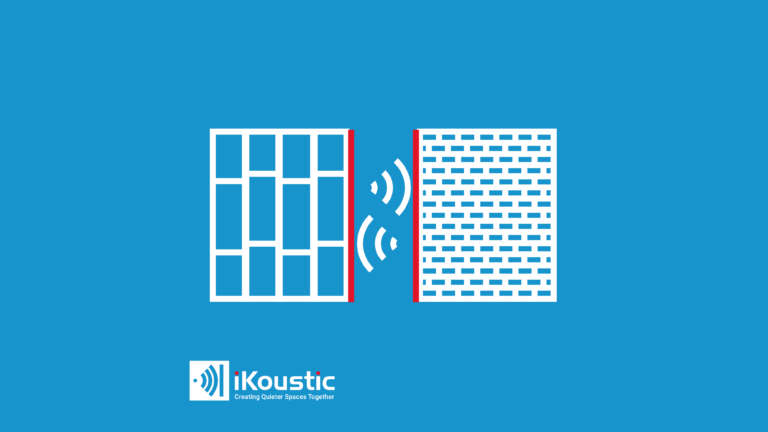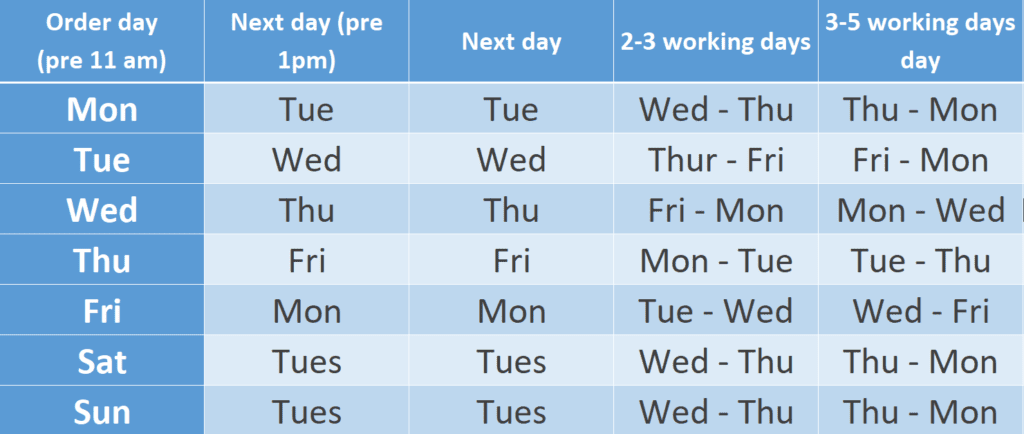How to soundproof a solid wall
To soundproof a solid wall from noisy neighbours, you need a system that uses high mass, absorption, and isolation. Using all three elements on a solid wall is the best defense against noisy neighbours.
High mass materials are able to insulate your room from sound entering or leaving by reflecting soundwaves. This means noise can’t pass through a partition. We use materials like acoustic plasterboard and MuteBoards to achieve this.
Absorption prevents reverberation inside any cavity spaces. Reverb will actually amplify the original noise and make the issue worse. While absorption doesn’t block sound, it will control the level of noise that needs to be blocked.
Decoupling will give you a physical separation between the wall soundproofing materials. Sound can travel between materials that are in contact fairly easily, so separating them improves your soundproofing!
How to soundproof a solid wall step by step
Step 1
Start by measuring out where each MuteClip will be placed. I use a chalk line to guide me here. Screw the clips in with the silicone side facing the solid brick. Clip the channel into place, making sure it doesn’t make direct contact with the other walls.
Step 2
Acoustic mineral wool can be inserted between the MuteClip channels for absorption. This has a high density. The wool is easy to cut to size and PPE should be worn as the material is fibrous.
Step 3
Soundproof panels, like MuteBoard or acoustic plasterboard, can be installed. These are screwed directly into the metal MuteClip channel so they don’t make any contact with the original solid brick wall.
Step 4
A final layer of soundproof panels are installed over the soundproofing visco-elastic membrane. These should not make contact with the adjacent walls and this gap is filled with acoustic sealant.
Step 5
You can skim plaster and decorate directly over your brick soundproof wall.
How a soundproof solid wall works
Solid brick wall soundproofing works by reflecting airborne noises away so they cannot leave or enter your room. This is called sound insulation (not to be confused with acoustic insulation!). The best brick wall soundproofing uses a decoupling device, like our MuteClip, as this creates a separation between the original wall and the soundproof panels.
If you think of the original brick wall as a path for sound vibrations to move through, placing soundproof panels directly onto it encourages the vibrations to move into the next material. Instead, we use a MuteClip between these two surfaces so that vibrations are stopped in their tracks!
How much is solid brick wall soundproofing?
Solid brick wall soundproofing costs from £34 per m2 to £58 per m2. Even our cheapest brick wall soundproofing uses the best materials and all three core principles of soundproofing. Many places will try to sell you a direct to wall system, because it would appear cheaper, however this is not always the case!
A direct to wall system is when a soundproofing panel is screwed into the wall, with no additional decoupling or absorption. We do offer these systems for stud walls, as they are needed when floor space is too tight for a decoupled solution. However, on a solid brick wall, these systems are not recommended. Brick walls already have a high mass, and a direct system is only offering high mass. We need to add one of the three other soundproofing ingredients: absorption or decoupling.
Soundproofing for walls between houses
Soundproofing for walls between houses (party walls) can be easily achieved with great results. Part wall soundproofing will block your noisy neighbours and can be finished in a day or two. It is recommended to use a MuteClip system for party walls, as noise levels from next door will vary over time and this system offers the best reduction.
You may need a party wall agreement with your neighbours, but try talking to them first. If they have no issues with the time the work will take place, you can begin to plan your wall soundproofing. It will benefit both you and your neighbours as it will block sound from entering or leaving your home. You only need to soundproof one side of the party wall.
Is a brick wall soundproof?
A brick wall offers a good level of soundproofing compared to a stud wall, but is not soundproof. How much sound your solid brick wall can reflect will depend on many factors, including
- Brick density
- Mortar cracks
- Wall furniture (shelves etc)
- Double or single skinned brick work
Brick walls will block more noise than a stud wall because they have a much higher mass. High mass materials are good at reflecting noises like talking and music. This prevents them from entering or leaving your room. If your bricks are aerated or the mortar is crumbling, more sound will be able to pass through.
What is the best way to soundproof a brick wall?
The best way to soundproof a brick wall is with an isolation clip, like the MuteClip. Because brick walls already have a high mass and can reflect some airborne noises, the extra mass afforded by soundproof panels is not terribly significant alone.
But by introducing a different soundproofing technique, decoupling, we will be able to make a meaningful sound reduction immediately. This is why a direct to wall soundproofing system is not good for brick walls; they already have a high mass and need a different solution.








